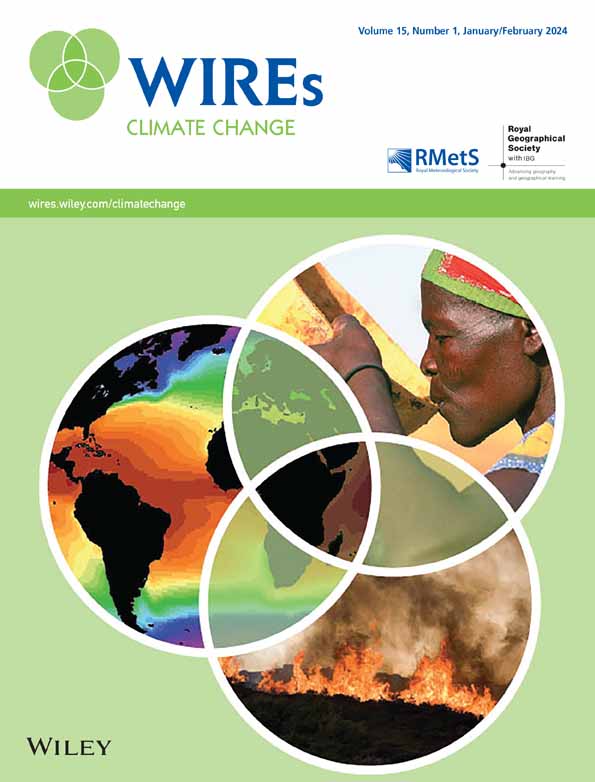设计中期转型:美国协调脱碳的中期挑战综述
IF 10.3
1区 环境科学与生态学
Q1 ENVIRONMENTAL STUDIES
引用次数: 11
摘要
使能源系统脱碳对应对气候变化至关重要。鉴于化石燃料在能源系统中的主导地位,脱碳需要大规模能源供应的快速和重大的工业转型。这包括明确和协调的计划,不仅包括零碳的逐步进入,还包括化石碳的逐步淘汰。即使是非常快速的脱碳也可能需要几十年的时间,这导致了一个中期的未来,即传统的、基于化石燃料的能源系统与新的零碳能源系统共存。每一方都对另一方施加操作约束:我们称之为中期过渡。值得注意的是,这种共存意味着新的零碳系统将在化石碳系统的约束下发展。因此,中期转型可能需要特定的分析指标,以支持动态和不确定条件下的决策制定。由于我们与能源系统的直接互动,转型的许多方面将由个人直接感受到和塑造。即使是罕见的失误也可能对认知、政治支持和实施产生重大的、潜在的与系统设计相关的影响。新系统与旧系统的比较可能是基于受气候变化影响较小的世界的经验,因此,与面临气候变化和长期投资不足后果的能源系统相比,对低可靠性、高成本和其他挑战的担忧可能被认为是零碳系统固有的。本综述评估和评估了与美国中期转型相关的中期挑战,强调需要对联合和协调的分阶段进入和分阶段退出进行明确规划。本文章由计算机程序翻译,如有差异,请以英文原文为准。
Designing the mid‐transition: A review of medium‐term challenges for coordinated decarbonization in the United States
Decarbonizing the energy system is critical for addressing climate change. Given the dominance of fossil fuels in the energy system, decarbonization requires rapid and significant industrial transition of the energy supply at scale. This includes explicit and coordinated plans not only for zero carbon phase‐in, but for fossil carbon phase‐out. Even very rapid decarbonization will likely take decades, leading to a medium‐term future where the conventional, fossil‐based energy system coexists with a new, zero‐carbon energy system. Each imposes operational constraints on the other: what we call the mid‐transition. Notably, this coexistence means that the new, zero‐carbon system will develop under fossil carbon system constraints. The mid‐transition will therefore likely require specific analytical metrics designed to support decision making under dynamic and uncertain conditions. Many aspects of transition will be felt, and shaped, directly by individuals because of our direct interactions with energy systems. Even rare missteps are likely to have significant and potentially system design‐relevant impacts on perception, political support, and implementation. Comparisons of the new system to the old system are likely to rest on experience of a world less affected by climate change, such that concerns about lower reliability, higher costs, and other challenges might be perceived as inherent to zero‐carbon systems, versus energy systems facing consequences of climate change and long‐term underinvestment. This review assesses and evaluates medium‐term challenges associated with the mid‐transition in the United States, emphasizing the need for explicit planning for joint and coordinated phase‐in and phase‐out.
求助全文
通过发布文献求助,成功后即可免费获取论文全文。
去求助
来源期刊

Wiley Interdisciplinary Reviews: Climate Change
METEOROLOGY & ATMOSPHERIC SCIENCES-
CiteScore
20.00
自引率
2.20%
发文量
58
审稿时长
>12 weeks
期刊介绍:
WIREs Climate Change serves as a distinctive platform for delving into current and emerging knowledge across various disciplines contributing to the understanding of climate change. This includes environmental history, humanities, physical and life sciences, social sciences, engineering, and economics. Developed in association with the Royal Meteorological Society and the Royal Geographical Society (with IBG) in the UK, this publication acts as an encyclopedic reference for climate change scholarship and research, offering a forum to explore diverse perspectives on how climate change is comprehended, analyzed, and contested globally.
 求助内容:
求助内容: 应助结果提醒方式:
应助结果提醒方式:


